ARETHA FRANKLIN / Early Aretha Mixtape
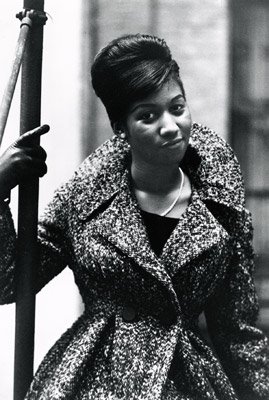
We know Aretha, the rise and splendor of her voice, hushing angels, lifting us to heaven. Yes. But the Aretha most of us know and celebrate is the Aretha of the Atlantic years, the hits (too numerous to enumerate here), and her dominance of popular music, mostly in the seventies. But there is another Aretha, a surprisingly large body of work from the Columbia Records era that preceded her enthronement.
This is the early Aretha and there is, of course, a lot here to hear and love. And beyond the strong moments, this is really a story of frustration, a story of excellence gone awry, not because she could not sing—her ability was evident from the first recording—but what was not evident was how to frame the masterful voice, what setting within which to place this auditory excellence.
Early Aretha affirms and definitively demonstrates the enduring truth of the jazz axiom: you can create hip music with square audiences. I suspect there was an even bigger problem than Columbia executives aiming at a mainstream audience. Ironically that impediment was a voice who started off singing supper club jazz and ended up dominating the Billboard pop charts; a voice most of us don’t initially consider when we talk about the greats of popular music.
Johnny Mathis. Yes, Johnny Mathis whose Greatest Hits album parked itself for 491 consecutive weeks on the Billboard Top 100; that’s an unequaled achievement by anyone before or since. I believe that Mathis’ success established a standard that every artist on the Columbia label was pushed to emulate. Unlike Billie Holiday who was saddled with many of the same “B, C and D” level songs, Aretha was not a professional blues and jazz musician. Although Ms. Franklin had a fine command of the keyboard, gospel was the music of her bones, and while there is certainly a tight relationship between urban rhythm&blues and post-war/post-forties gospel music, the truth is Aretha was not ever going to produce a Lady In Satin album, just like Billie never produced an Amazing Grace album. They were very different musicians.
Moreover, Aretha was never going to do fireside, cutesy, cuddlin’ music either. "Dr. Feelgood" is on the other side of town from “Chances Are.” The problem is Johnny Mathis was not inclined to the black-hand side of the musical equation, so his ability to produce strings-drenched, damn near kitschy sentimental renditions of ballads and countless iterations of Tin Pan Alley/Broadway/& Hollywood fluff were actually not too far from his personal tastes. What was a tailored fit for Johnny Mathis, was a corset two sizes too small for Aretha. All those damn strings and the inane, if not utterly inappropriate, repertoire was a couple of miles too far for Aretha to do anything significant with the music.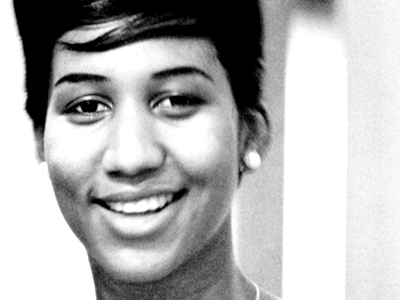
She tried, and as the selections on the Mixtape delineate, at times Aretha even did a credible job but she wasn’t a Clydesdale—pulling a beer truck was an absolute waste of her talent. I suspect that Aretha’s incarceration in the velvet cells of Columbia records fueled the fire of her blazing Atlantic years. Being at Columbia undoubtedly taught Aretha what not to do, as well as what not to allow others to do to her music.
As testimony to the greatness of the aforementioned Billie Holiday, Ms. Holiday was able to transcend schlock to turn a sow’s auditory appendages into silk and satin, but few others mortals have demonstrated that miracle worker talent. And that explains why all those years and all those recordings at Columbia could produce a scant amount of gold nuggets, it’s mostly sand; fine sand, but sand nonetheless.
The main reason I’m writing this is not to put down Columbia Records because face it, Aretha’s recording career is congruent with the Civil Rights/Black Power era when there were tremendous social shifts happening. The people at Columbia could not be expected to be in concert with the momentous and often militant movements sweeping across the cultural landscape. Indeed, think of Nina Simone who initially was entrapped in the same box. Remember that Nina’s first “hit” was “I Love You Porgy.” But again, where Billie had blues and jazz, Nina had been trained in classical piano and had served an apprenticeship doing jazz interpretations of standards. Both Billie Holiday and Nina Simone were comfortable with and proficient at re-interpreting the mainstream; that was never Aretha’s comfort zone.
One other note: the heads of Atlantic records were not saddled with a legacy of intense racism and dismissive attitudes about specific aspects of black culture/black people. They were Turkish immigrants who were fascinated with and respectful of African American culture, particularly the music. The heads of Atlantic didn’t want to get Aretha to crossover; indeed the Ertegun brothers wanted to produce deep black music, which of course meant that Aretha was unleashed.
The occasion for this discussion and the resultant Mixtape is Take A Look, a definitive box set: 13 CDs and one DVD (five tracks from an appearance on the Steve Allen television show). 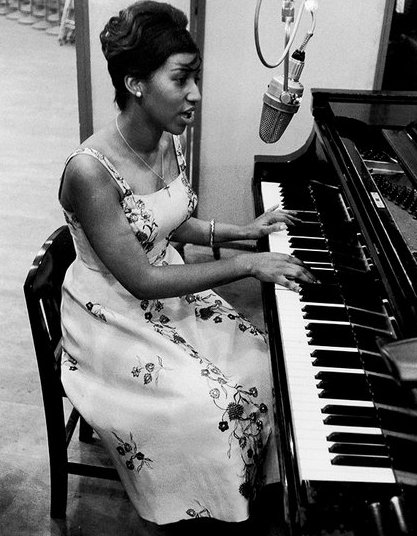
For those of us who are deep fans of Aretha Franklin this is required listening to fully appreciate where the queen was coming from and how she developed. Had she not become who she did, this would be a good set as is. It’s not quite but almost like the plethora of Coltrane recordings during his Prestige years, which, come to think of it, directly preceded Coltrane’s significant stint at Atlantic Records, a stint that underscores my appraisal of the significant difference between Atlantic Records and the mainstream labels. Like Aretha sang in one of her signature songs, when it comes to working with producers, nothing beats respect.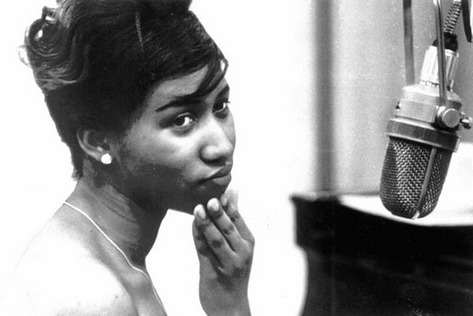
Take A Look was produced by Leo Sacks who has a knack for repackaging neglected gems of sixties and seventies era music. If you’ve got the ducats, you should invest in this excellently packaged box set. The liner notes are insightful and detailed. There are oodles of photographs you’ve probably not seen before. But most important of all, there are alternate takes and even some studio chatter. This is an intimate portrait of early Aretha Franklin, which, need I say it, is music of a higher order than most other singers at the apogee of their maturity.
Make no mistake, my quibbles have to do with the fact that Columbia was not equipped to help Aretha produce her best but damn even muffled by over-production and poor song selections, Aretha still manages to deliver some beautiful music.
Take a look, have a listen. Leo Sacks nailed it when he described this project: "The stunning performances on Take A Look demonstrate how Aretha Franklin paved the path to her own greatness. Here is the young Aretha planting the seedlings that would blossom a short time later at Atlantic Records. From standards to show tunes to bebop to blues, Take a Look captures a gritty soul about to take flight."
—Kalamu ya Salaam
Early Aretha Mixtape Playlist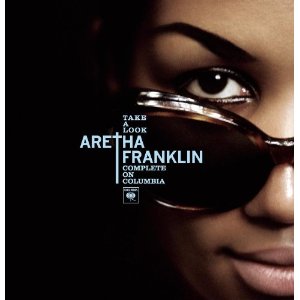
01 “Misty [previously unreleased]”
02 “Love For Sale [previously unreleased]”
03 “Without The One You Love [previously unreleased}”
04 “All Night Long [Album Version]”
05 “Today I Sing The Blues [2011 Remaster]”
06 “Runnin' Out Of Fools [2011 Remaster]”
07 “Skylark [2011 Remaster]”
08 “Say It Isn't So [Mono Mix]”
09 “If I Should Lose You [2011 Remaster]”
10 “Soulville [2011 Remaster]”
11 “Lee Cross [Mono Mix]”
12 “Skylark”
13 “Evil Gal Blues”
This entry was posted on Monday, June 27th, 2011 at 1:39 am and is filed under Classic. You can follow any responses to this entry through the RSS 2.0 feed. You can leave a response, or trackback from your own site.
2 Responses to “ARETHA FRANKLIN / Early Aretha Mixtape”
June 27th, 2011 at 9:31 pm
Thank you for your commentary providing us with a context for listening. I am 59 years old. So, even though I might have been in elementary school when they were issued, I remember some of these Aretha cuts. I remember when “I ain’t never loved A Man” came out wondering why people were acting like she was a new singer. I was definitely a fan since hearing “It Won’t Be Long” and “Running out of Fools”
July 2nd, 2011 at 9:07 am
Thanks as always for these outstanding samplers. This is the year that I finally fell for Aretha big time, I just can’t get enough of her. I’m not so familiar with the Columbia stuff, so I look forward to this.
Leave a Reply
| top |